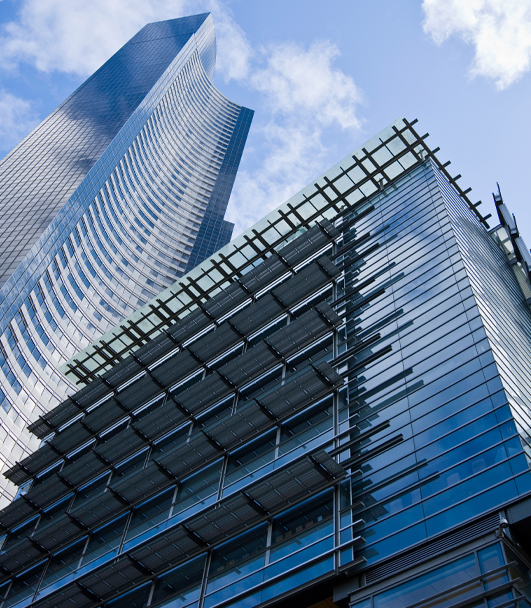Overview On July 25, 2024, the Washington Supreme Court held in Suarez v. State that an employer denying an employee’s…



Construction is one of the most dangerous industries in the United States, accounting for over 20% of all workplace fatalities and countless non-fatal injuries annually.[1] Many tragic construction injuries and deaths are preventable and are the direct result of defective construction equipment. Even at highly controlled construction sites, equipment that is poorly engineered or that has been constructed with defective components can malfunction, causing catastrophic injuries.
In many construction injuries, workers may be limited to seeking workers’ compensation benefits. However, if someone other than an employer may be at fault for an injury or wrongful death, the injured employee may bring a claim against such other party in addition to seeking workers’ compensation benefits. This includes being able to sue a variety of potential defendants in the case of defective equipment.
At Karr Tuttle Campbell, in addition to suing other construction job site participants that may be liable in a construction injury or death, we are also focused on whether defective equipment may have played a role. We perform meticulous investigations so that we can bring an action against all those responsible, as this is the only way to ensure that full and fair compensation can be obtained.
As experienced Seattle defective construction equipment lawyers, we can listen to the facts of your case, explain your legal options, and tenaciously fight to obtain maximum compensation.
Call our office today at 206-223-1313 to schedule a free consultation to learn more about pursuing a product liability case.
We represent injured construction workers on a contingency fee basis, meaning we are only entitled to a fee if compensation is recovered on a client’s behalf. We also advance all costs of litigation on behalf of clients (these amounts are normally repaid through a settlement or favorable verdict).
When equipment is defective and causes a tragic accident, multiple parties could be liable, including (but not limited to):
When you retain Karr Tuttle Campbell, our dedicated team of construction defect attorneys will research the supply chain associated with the defective equipment and help identify all potentially liable parties to provide the greatest chances of securing maximum compensation.
Employers are almost always liable for workers’ compensation benefits for workplace injuries and deaths, regardless of the underlying cause of the injury or death. Typically, Workers’ compensation is generally the only legal remedy available against an employer – unless the incident was caused intentionally. Under Washington law, if an employer or co-worker intentionally causes an accident, it may be possible to pursue other damages, although “intentionality” is usually hard to prove.
When the term defective equipment is used, most likely this brings up images of equipment failing, such as a chain coming off a chainsaw while in use. However, equipment may be defective in a number of ways, including:
Washington construction employees commonly work with a variety of heavy machinery and equipment. When construction equipment malfunctions, horrifying injuries and workplace fatalities can easily occur.
The following are some of the most common types of heavy machinery which can cause construction equipment accidents:
Construction equipment should be made for high-powered, heavy use. Equipment that may be fine for a homeowner doing a very small project often will not be appropriate for a commercial construction project, in which tools may be in use for 8 hours or more a day, day after day.
As such, the heavy machinery used in the construction industry must be carefully designed and manufactured to ensure worker safety. For example, machinery should have safety features, such as emergency shut-offs and fail-safes, that can prevent errors from turning into major worksite accidents.
Reasonable safety protocols must be built into equipment that potentially might be dangerous; however, in some instances manufacturers do not adequate safety protocols because of the extra cost involved. Consequently, many companies place their own revenue before the needs of consumers, putting the safety and security of hard-working construction workers in jeopardy.
Even when a piece of equipment is designed properly, it can still be hazardous if it is manufactured using substandard parts or materials. Common malfunctioning parts include (but are not limited to):
The most common injuries resulting from defective construction machinery and equipment include:
Due to the sheer size of heavy machinery, defective equipment accidents can also result in death.
If you were injured (or if a loved one died) as a result of defective machinery or equipment, we invite you to call our office to schedule a free consultation with an experienced Washington defective equipment attorney.
Construction equipment defects can lead to catastrophic injuries and extensive damages. In addition to medical expenses, product liability law allows injured workers to pursue economic damages for:
Non-economic damages may also be available to an injured worker or their family members (in the event of a wrongful death). Non-economic damages include (but are not limited to):
This is only a partial list of some of the types of compensation that may be recoverable; other types of compensation may be available depending upon the facts of a case.
As experienced construction defective equipment lawyers, we can carefully evaluate the facts of your case to determine the full extent of your damages. Then, we will tenaciously fight to obtain the maximum compensation to which you and your family are rightfully entitled.
At Karr Tuttle Campbell, we have decades of combined experience handling defective construction equipment and machinery cases. When we accept a personal injury case, our experienced construction defect attorneys are prepared to leave no stone unturned in seeking justice and maximum compensation for your injuries. Call our office today to schedule a free consultation to learn how we can assist in your matter.
[1] Fatal and nonfatal falls, slips, and trips in the construction industry, U.S. Bureau of Labor Statistics, Fatal and nonfatal falls, slips, and trips in the construction industry : The Economics Daily: U.S. Bureau of Labor Statistics (bls.gov).